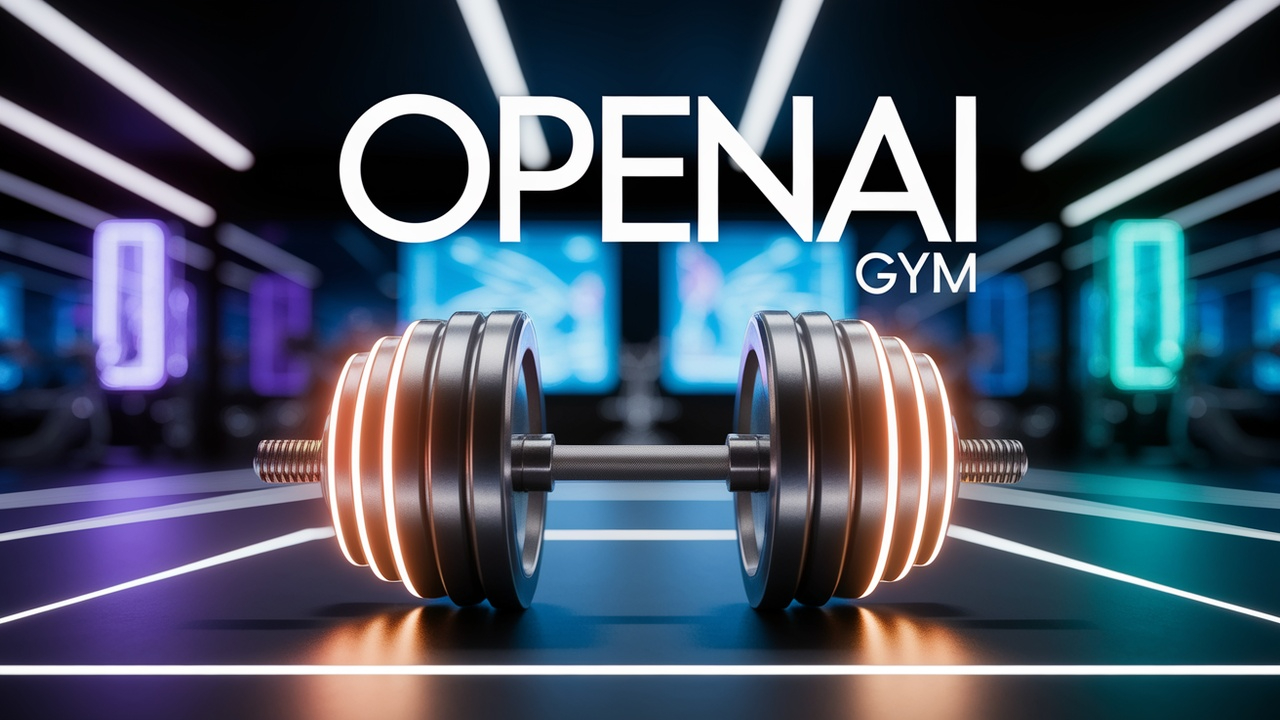
This course provides a hands-on approach to understanding and utilizing OpenAI Gym for developing reinforcement learning projects. Through a structured learning path, participants will gain practical experience in building, training, and evaluating AI agents in various simulated environments.
Course Levels
-
Level 1: Introduction to OpenAI Gym
In this level, learners will be introduced to OpenAI Gym, its purpose, and its core functionalities. Students will set up their environment and run their first simulation.
-
Level 2: Understanding Reinforcement Learning Basics
This level covers the fundamentals of reinforcement learning, including the key concepts and terminology necessary for building effective agents.
-
Level 3: Implementing Simple Agents
Learners will create their first reinforcement learning agents using basic algorithms. This level focuses on implementing agents and understanding their behaviors in different environments.
-
Level 4: Advanced Agent Techniques
This level dives deeper into more complex algorithms and techniques for training agents, including deep learning approaches.
-
Level 5: Working with Custom Environments
Learners will create their own custom environments in OpenAI Gym, allowing for tailored simulations for specific reinforcement learning tasks.
-
Level 6: Multi-Agent Systems
This level explores the concept of multi-agent systems, where multiple agents interact within the same environment, leading to more complex behaviors and strategies.
-
Level 7: Real-World Applications of OpenAI Gym
In this level, learners will explore various real-world applications of reinforcement learning using OpenAI Gym, including robotics and game playing.
-
Level 8: Final Project and Evaluation
The final level allows learners to apply their knowledge by designing and implementing a comprehensive project that utilizes OpenAI Gym and reinforcement learning techniques.
Course Topics
-
Analyzing Agent Performance
# Analyzing Agent Performance In this section, we will delve into the metrics and methodologies used to evaluate the performance of agents implemented in OpenAI Gym. Understanding how to analyze agen...
-
Understanding Environments
# Understanding Environments in OpenAI Gym OpenAI Gym provides a standard API to develop and compare reinforcement learning algorithms. At its core, the Gym consists of various environments that simu...
-
Testing and Debugging Your Custom Environment
# Testing and Debugging Your Custom Environment Creating a custom environment in OpenAI Gym is an exciting venture, but it can also introduce several challenges. Testing and debugging are critical ph...
-
Introduction to Q-Learning
# Introduction to Q-Learning Q-Learning is a model-free reinforcement learning algorithm that helps agents learn how to optimally act in an environment. Unlike traditional programming methods, where ...
-
Installing OpenAI Gym
# Installing OpenAI Gym OpenAI Gym is a toolkit for developing and comparing reinforcement learning algorithms. It provides a variety of environments to test and train your agents, making it an essen...
-
Markov Decision Processes
# Markov Decision Processes (MDPs) Markov Decision Processes (MDPs) are a mathematical framework for modeling decision-making situations where outcomes are partly random and partly under the control ...
-
Experience Replay and Target Networks
# Experience Replay and Target Networks In reinforcement learning (RL), agents learn to make decisions by interacting with an environment. However, training these agents can be inefficient and unstab...
-
Implementing Q-Learning in OpenAI Gym
# Implementing Q-Learning in OpenAI Gym Q-Learning is a model-free reinforcement learning algorithm that enables an agent to learn how to optimally act in an environment through trial and error. In t...
-
Introduction to Multi-Agent Reinforcement Learning
Learn about this topic in the course
-
Testing and Debugging Your Project
# Testing and Debugging Your Project In the development of any project, particularly in the realm of artificial intelligence and reinforcement learning, ensuring that your code functions as intended ...
-
Reinforcement Learning in Robotics
# Reinforcement Learning in Robotics Reinforcement Learning (RL) has emerged as a powerful paradigm for training agents to perform complex tasks in uncertain environments. In the field of robotics, R...
-
Game AI Development with OpenAI Gym
# Game AI Development with OpenAI Gym In this section, we will explore how to develop game AI using OpenAI Gym, a toolkit that provides various environments for testing reinforcement learning algorit...
-
Implementing DQN (Deep Q-Network)
# Implementing DQN (Deep Q-Network) ## Introduction to Deep Q-Networks Deep Q-Networks (DQN) are a type of reinforcement learning algorithm that combines Q-learning with deep neural networks. The pri...
-
Creating a Simple Random Agent
# Creating a Simple Random Agent In this section, we will explore how to create a simple random agent that interacts with an environment using OpenAI Gym. This agent will take actions randomly, provi...
-
Presenting Your Project
# Presenting Your Project Presenting your project is a vital step in the development process, especially when it comes to demonstrating the value of your work to stakeholders, peers, or potential use...
-
Evaluating Agent Performance
# Evaluating Agent Performance in Reinforcement Learning In the field of Reinforcement Learning (RL), evaluating the performance of an agent is crucial for understanding how well it is learning and a...
-
Analyzing Inter-Agent Dynamics
# Analyzing Inter-Agent Dynamics In multi-agent systems, understanding how agents interact with each other is crucial for predicting system behavior, improving collaborative performance, and designin...
-
Preparing Project Documentation
# Preparing Project Documentation Preparing thorough project documentation is crucial for the success and sustainability of any project, especially in the context of OpenAI Gym projects. Proper docum...
-
Introduction to Deep Reinforcement Learning
# Introduction to Deep Reinforcement Learning Deep Reinforcement Learning (DRL) is a powerful combination of deep learning and reinforcement learning (RL) techniques. It enables agents to learn how t...
-
Building a Neural Network with TensorFlow/PyTorch
# Building a Neural Network with TensorFlow/PyTorch In this section, we will explore how to build a neural network using two popular frameworks: TensorFlow and PyTorch. Both frameworks are widely use...
- And 20 more topics...